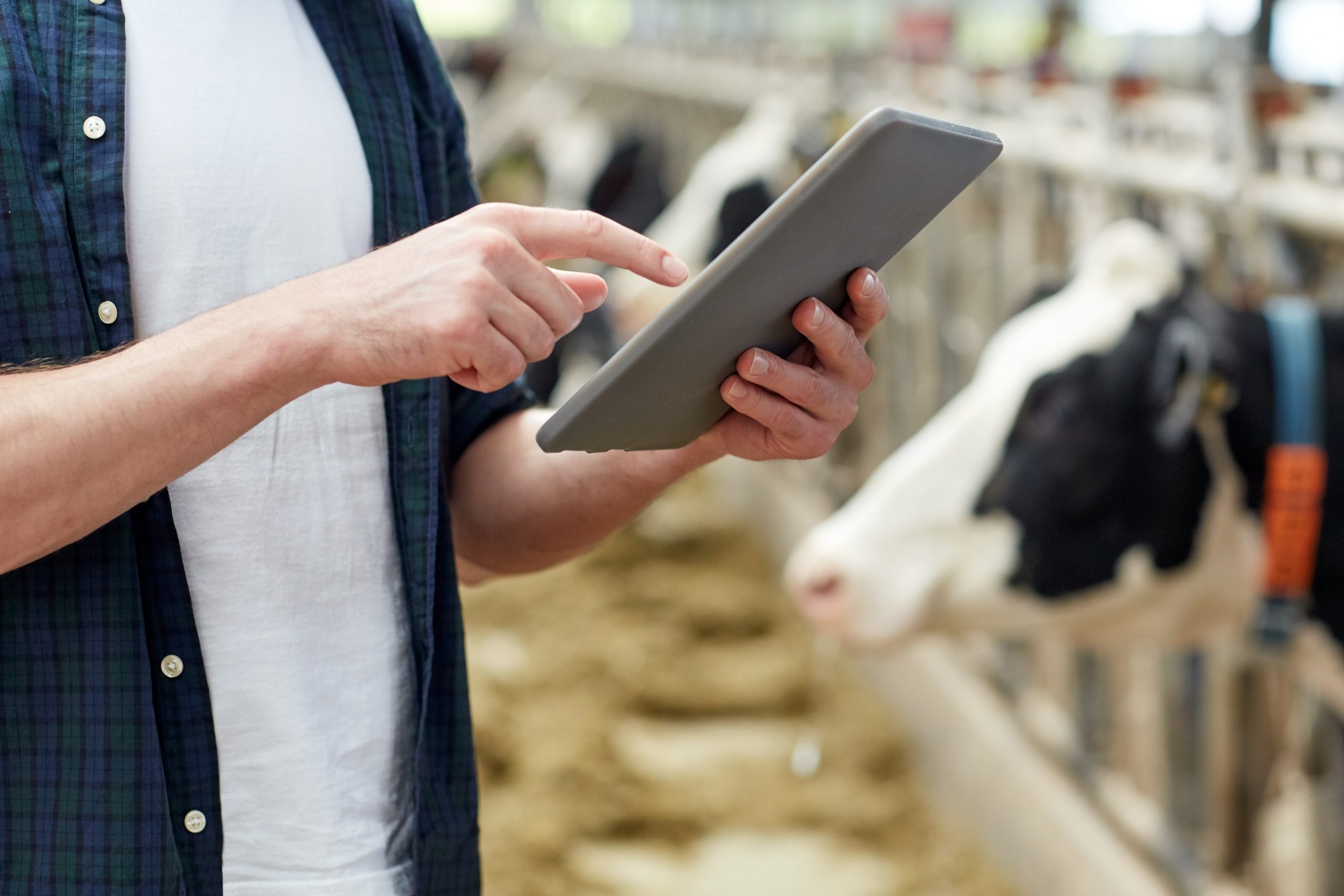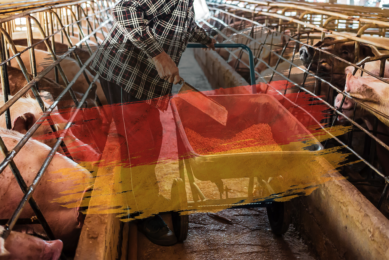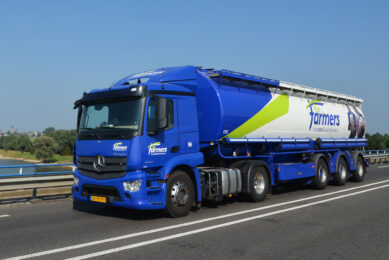The latest feed business updates from around the world

The international animal feed sector is a dynamic industry. What are the new products and acquisitions of last month? All About Feed wraps up the highlights.
Nuscience feed technology enters Canadian market
Nuscience, a member of the Royal Agrifirm Group, has announced the introduction of its elite level feed technology suite into the Canadian market, under the Biotica product brand via strategic marketing partnership with Canadian Bio-Systems Inc. Biotica is a functional feed additive. It is available in tailored formulations for different types of poultry, as well as for swine and ruminants.
New aquafeed ingredients with caretenoid
US company KnipBio, Inc. developed a line of KnipBio Meal™, the company’s premium aquafeed ingredient, that contains bio-astaxanthin, the carotenoid that gives salmon, rainbow trout, and shrimp significant health benefits as well as their characteristic pink colour. The product is created from a strain of the microorganism Methylobacterium extorquens that produces astaxanthin in commercially relevant quantities. This breakthrough provides the aquaculture industry a new source of biologically produced astaxanthin that is competitively priced with synthetic versions of the product derived from petrochemicals. Astaxanthin is an antioxidant approved as an additive for salmon, trout, and shrimp whose reported health benefits in animals include faster growth, better feed conversion rates, improved disease resistance, and reduced embryonic mortality. The aquaculture industry currently consumes more than $ 300 million per year of this carotenoid.
Bluestar Adisseo closes Nutriad acquisition
Bluestar Adisseo Company (”Adisseo”) announces that it has completed the acquisition of global feed additives producer Nutriad. This transaction is part of Adisseo’s strategy to become one of the worldwide leaders of specialty additives in animal nutrition. A joint Adisseo/Nutriad project group has been set up and is already working on identifying and implementing the synergies.
New book on enzymes
Enzymes in Human and Animal Nutrition: Principles and Perspectives is a new book, published by Elsevier – Academic Press. The book, edited by Carlos Simões Nunes, CSN Consulting in France and Vikas Kumar from Kentucky State University, is a detailed reference on enzymes covering information on all relevant aspects fundamental for final use of enzymes in human and animal nutrition. Topics explored include depolymerizating enzymes, both from a food and feed perspective, different enzymes and some direct fed microbials, and the important technological issues related to enzyme use and production. Readers will develop new insights for applications of enzymes in foods and feeds with the wealth of knowledge brought forth by the authors of the various chapters.
Alltech establishes its first office in Cambodia
Over the past 12 months, Alltech’s business in Cambodia has catapulted, with 33% growth over the last year. To better deliver the level of support required to sustain this rate of growth, Alltech is opening its first office in Cambodia. Located in Phnom Penh, the Cambodia team will be led by Channarith Ky, who has more than 20 years of experience in agriculture as a business director and nutritionist. Alltech already works with producers in Cambodia, supporting them with Alltech’s proprietary acidifiers and organic trace minerals, but establishing a base in the region will position the Alltech team to become a stronger local partner. Domestic feed production has doubled in tonnage since 2013, and it is expected that it will double again within the next 3 to 4 years as Cambodia’s agriculture sector becomes increasingly self-sufficient.
Evonik and Fufeng Group enter strategic partnership
Evonik and the Fufeng Group have entered into a cooperation agreement for the production of ThreAMINO® (L-threonine). The renowned Chinese specialist in bio-fermentation will toll manufacture ThreAMINO for Evonik using Evonik’s technology. This strategic partnership supports Evonik’s positioning and efficiency in the animal nutrition segment. For the first time, Evonik is now able to offer ThreAMINO worldwide with a lean asset footprint.
The Junan-based Fufeng Group operates several large-scale production facilities in Northern China and counts as the world’s largest producer of starch-based food and feed ingredients with a strong record of manufacturing fermentative feed additives. The collaboration with Evonik enables Fufeng to assume an important role in supplying amino acids.
Ascus pioneers endomicrobial ecology
US company Ascus is pioneering Endomicrobial Ecology, an emerging science harnessing the natural diversity within an animal’s microbiome to improve animal health and performance. Ascus combined high throughput sequencing methods with proprietary computational methods to illuminate the inner workings of an animal’s microbiome. Starting in dairy cows, Ascus curated the largest dairy rumen microbe data set in the world to identify 50,000+ unique microbial strains from more than 4,500 dairy cow rumen samples. Analysis of these samples allowed researchers to identify a core set of common microbial strains distinguishing high performing dairy cows from their lesser performing peers. Researchers then analysed the relationships between these microbes and how they affect dairy cow functions and health. Following animal validation trials around the globe that show improvements in dairy cow health and performance, Ascus will introduce the first endomicrobial feed supplement based on Endomicrobial Ecology following regulatory approvals starting as early as 2018.
Swedish start-up to reduce fertiliser usage by 40%
Vultus, a fast-growing Swedish startup, together with its partners from Russia, Ukraine, the UK, and India is launching a satellite system, which enables farmers to fertilise their crops with much greater precision and at a lower cost to grow healthier plants. The global system is suitable for farmers of all sizes, ranging from small plot farmers in developing countries to farmers, who operate on a large industrial scale. Vultus technology will be launched on March 16th 2018. The satellite system provides farmers with the precise information about the fertilisation needs of their plants. Therefore, rather than spreading the fertilisers evenly across the field, Vultus solution lets farmers know which plants may need more or less fertilisation. For a typical farmer, these up-to-date satellite recommendations could save up to 40% of the fertilisers, whilst increasing yields and crop quality. For a medium sized farmer, who works in a field of 250 hectares, the system would save approximately € 15,000 per year. The technology strives to save not just money, but also the environment. Vultus has an ambitious goal – to eliminate waste in farming. It is estimated that currently about 60% of fertilisers go to waste due to the lack of knowledge of which plants need more or less fertilisation. Even more daunting is the fact that over-fertilisation contributes to approximately 7% of CO2 emission in Sweden alone. Vultus was founded by William Håkansson (22) and Robert Schmitt (20) in 2016. Since then the team has grown to 9 people and the technology has been used by farmers and seed developers, in Sweden, during 2 growing seasons.
Cargill invests in dairy tech firm Cainthus
Cainthus has received an undisclosed investment from protein giant Cargill. Cargill is also entering into a partnership with the startup and has already run several trials with Cainthus technology. So far, Cainthus has tested their system in commercial dairy farms in New York, California, Canada, Italy, and Spain. Cainthus uses various types of imaging equipment to monitor livestock operations by using artificial intelligence and custom algorithms. Its system can detect behaviour, monitor health, measure feed and water intake, detect when the animals are in heat and more. Within seconds Cainthus imaging technology can identify individual cows by their features, memorise their unique identity and record individual patterns and movements. “We train our AI to understand that a particular pixel pattern is a cow and when that pixel pattern exhibits a rate of change of movement that determines what the gesture is,” says founder David Hunt. The interest of Cargill to invest and cooperate with Cainthus comes from its quest to find strategies to use digital technologies to fundamentally improve livestock and aquaculture operations. Sri Kantamneni, managing director of digital insights at Cargill said to AgFunder: ”One of the most attractive qualities of Cainthus technology was its potential to apply to all animal protein sectors. “We have hopes for taking their technology to pork, poultry and aquaculture as well.” Trials have shown that farmers can earn an additional US$ 100-200 return per animal, per lactation cycle using the system and the most common issues that Cainthus detects are the cows running out of feed at night and not having enough water. Fixing these problems alone can bring a noticeable financial return, said Hunt.
Cargill expands Texas feed mill and acquires Pro-Pet
To better meet the needs of customers in the growing Texas market, Cargill is investing $ 32 million in new construction to increase production capacity of its feed mill located in Temple, Texas. Once fully operational in 2019, Cargill will add approximately 30 jobs to the facility. The facility is currently designed to produce bulk turkey feed, and the investment will add additional capability for agricultural retail and beef customers. Construction will begin in March and is projected to be complete in early 2019. Cargill has also closed on its agreement to acquire Pro-Pet, an Ohio-based manufacturer of private label and co-manufactured pet foods, including premium dog food brand Black Gold®. The deal was announced in early January. The acquisition makes Cargill the only national supplier of both animal feed and pet food offerings in the agricultural retail space. In acquiring Pro-Pet, Cargill is gaining 3 pet food manufacturing facilities in Owatonna, Minn.; St. Marys, Ohio; and Kansas City, Kan., and its portfolio of products, brands and customer and supplier relationships.
Biomin expands Benelux presence
Animal nutrition company Biomin has announced the build out of its local presence in Belgium, the Netherlands and Luxembourg, as part of its strengthened commitment to serving feed and animal protein producers throughout the region. Biomin products first became commercially available in Benelux around 1997 through local distribution agreements. One element of the expansion strategy involves the recent creation a local Biomin business unit based in Uden, the Netherlands, which affords a central base for on-site visits and customer support throughout the area. Hans Couwenberg, who joined the firm as Managing Director Benelux in 2017, will lead the company’s activities throughout the area.
For new and existing customers in Belgium, the Netherlands and Luxembourg, Biomin delivers account servicing, order fulfilment and support starting in February 2018.











